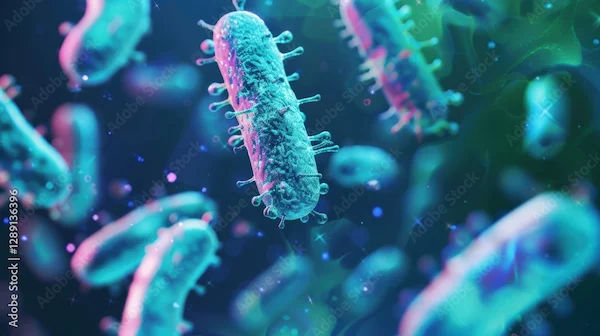When to Seek Help for Petechiae
Petechiae are tiny red or purple spots under the skin. Learn what causes them, when they’re harmless, and when to seek medical help for proper diagnosis and care.

Written by Dr. Vasanthasree Nair
Reviewed by Dr. D Bhanu Prakash MBBS, AFIH, Advanced certificate in critical care medicine, Fellowship in critical care medicine
Last updated on 21st Aug, 2025

Petechiae (pronounced puh-TEE-kee-ee) are tiny, pinpoint red or purple spots that appear on the skin. They occur when small blood vessels (capillaries) break and leak blood under the skin. While they may look alarming, petechiae are not always a cause for concern. However, in some cases, they can signal an underlying health issue that needs medical attention.
This article will help you understand:
- What petechiae look like
- Common causes
- When to worry and seek medical help
- Tips for managing petechiae
What Do Petechiae Look Like?
Petechiae are small, flat spots that:
- Are red, purple, or brown
- Do not turn white when pressed (unlike a rash)
- Often appear in clusters
- Commonly show up on the legs, arms, face, or inside the mouth
They are different from bruises, which are larger and change color over time.
Common Causes of Petechiae
Petechiae can result from minor issues or serious conditions. Some common causes include:
1. Physical Strain or Injury
- Coughing or vomiting – Forceful actions can burst tiny blood vessels.
- Sunburn or skin trauma – Excessive scratching or tight clothing may cause petechiae.
2. Infections
- Viral or bacterial infections (like strep throat, meningitis, or dengue fever) can lead to petechiae.
3. Blood Disorders
- Conditions like low platelet count (thrombocytopenia) or leukemia may cause bleeding under the skin.
4. Medications
- Certain drugs (like blood thinners, antibiotics, or NSAIDs) can increase the risk of petechiae.
5. Vitamin Deficiencies
- Lack of vitamin C (scurvy) or vitamin K can affect blood clotting and cause petechiae.
When Should You Seek Medical Help?
While petechiae can sometimes be harmless, certain signs indicate a need for immediate medical attention. See a doctor if you notice:
- Petechiae appear suddenly and spread quickly
- Accompanied by fever, fatigue, or dizziness
- Bleeding gums or nosebleeds
- Unexplained bruising
- Severe headache or stiff neck (possible meningitis sign)
- Shortness of breath or rapid heartbeat
If petechiae appear after an injury but don’t fade in a few days, consult a doctor.
Consult Top Specialists
How Are Petechiae Diagnosed?
A doctor may perform:
- Physical examination – Checking the spots and other symptoms.
- Blood tests – To check platelet count, infections, or clotting disorders.
- Other tests – If needed, a bone marrow test or imaging may be recommended.
Tips for Managing Petechiae
If petechiae are due to minor causes, they may fade on their own. Here’s how you can help:
- Rest and avoid strain – Reduce heavy lifting or intense coughing.
- Stay hydrated – Helps maintain healthy blood circulation.
- Eat a balanced diet – Include foods rich in vitamin C (citrus fruits, bell peppers) and vitamin K (leafy greens, eggs).
- Avoid medications that worsen bleeding – Unless prescribed, limit aspirin or NSAIDs.
When to Consult a Specialist?
If petechiae persist or worsen, consult a hematologist (blood specialist) or dermatologist. Early diagnosis can prevent complications.
Need Help? Book a Consultation Today!
If you or a loved one has unexplained petechiae, don’t ignore them. Apollo 24|7 offers expert consultations and lab tests to diagnose the cause quickly.
Final Thoughts
Petechiae can be harmless, but they may also signal a serious condition. Pay attention to your body, and seek medical advice if you notice concerning symptoms. Early detection and treatment can make a big difference in your health!
Consult Top Specialists
Consult Top Specialists
Dr. Gaddam Manoj
General Practitioner
1 Years • MBBS
Hyderabad
Aaradhya clinic, Hyderabad

Dr Syed Mateen Pasha
General Physician
2 Years • MBBS
Bengaluru
PRESTIGE SHANTHINIKETAN - SOCIETY CLINIC, Bengaluru

Dr. Anand Ravi
General Physician
2 Years • MBBS
Bengaluru
PRESTIGE SHANTHINIKETAN - SOCIETY CLINIC, Bengaluru

Dr. Syed Ismail Ali
General Practitioner
7 Years • MBBS
Hyderabad
Apollo 24|7 Clinic, Hyderabad

Dr. Johnson. S
General Practitioner
7 Years • MBBS MD(Preventive and social Medicine)
Pune
Apollo Clinic, Nigdi, Pune
Consult Top Specialists
Dr. Gaddam Manoj
General Practitioner
1 Years • MBBS
Hyderabad
Aaradhya clinic, Hyderabad

Dr Syed Mateen Pasha
General Physician
2 Years • MBBS
Bengaluru
PRESTIGE SHANTHINIKETAN - SOCIETY CLINIC, Bengaluru

Dr. Anand Ravi
General Physician
2 Years • MBBS
Bengaluru
PRESTIGE SHANTHINIKETAN - SOCIETY CLINIC, Bengaluru

Dr. Syed Ismail Ali
General Practitioner
7 Years • MBBS
Hyderabad
Apollo 24|7 Clinic, Hyderabad

Dr. Johnson. S
General Practitioner
7 Years • MBBS MD(Preventive and social Medicine)
Pune
Apollo Clinic, Nigdi, Pune




